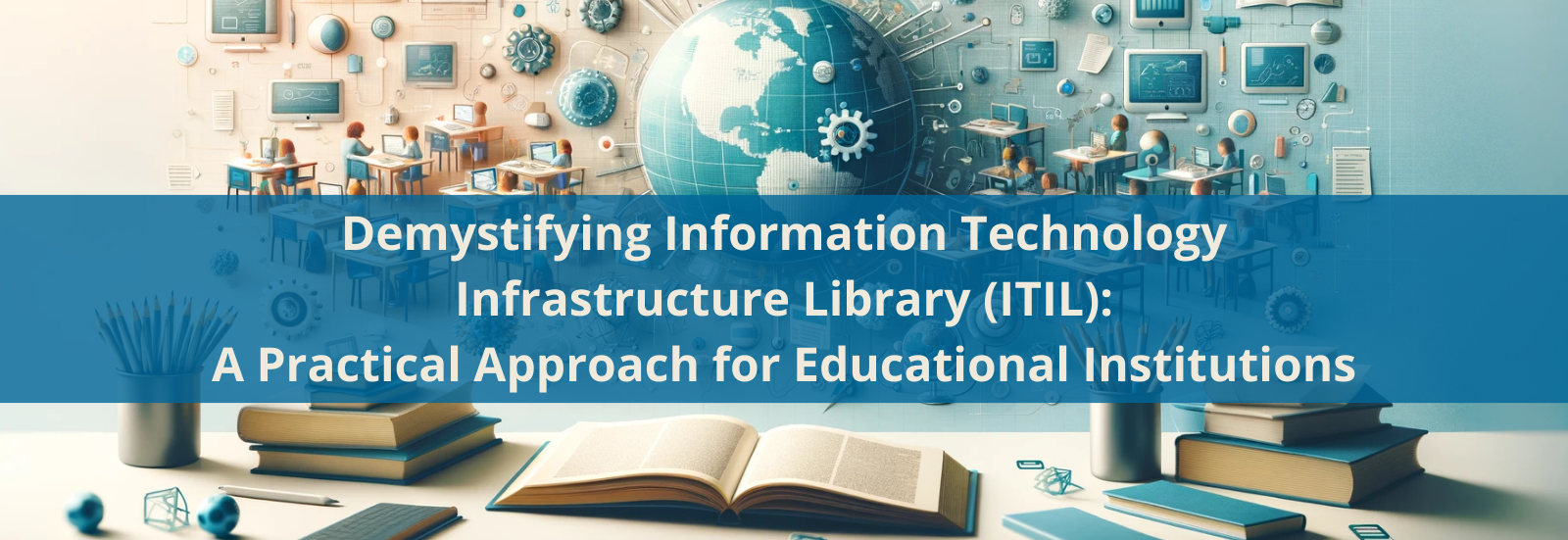Introduction: Understanding ITIL and its Relevance in Education
In the fast-evolving landscape of educational technology, Information Technology Infrastructure Library (ITIL) has emerged as a key framework for managing IT services. Initially developed by the UK government, ITIL has become the most widely accepted approach to IT service management globally. Unlike any technology or product, ITIL provides directive guidelines for IT teams, aiming to reduce IT incidents and improve resolution times. In educational institutions, where resources are often limited, ITIL offers a structured framework to optimize IT-related services and processes.
The Pressing Challenges of IT in Education
Educational institutions face unique challenges in IT management. Shrinking budgets and escalating security threats are at the forefront. With the rise of digital learning and remote education, the need for efficient IT service management has never been more critical. ITIL’s structured approach can help educational institutions address these challenges by providing a systematic method for managing IT services and improving operational efficiency.
Core Principles of ITIL and Their Application in Education
ITIL operates on several guiding principles, such as focusing on value, starting from the existing state, and progressing iteratively with feedback. These principles are not only universally applicable but also crucial for educational institutions looking to align their IT services with their academic missions. For example, focusing on value can help schools prioritize IT actions and decisions that bring the most benefit to their educational objectives.
The Service Value Chain in Education
The Service Value Chain (SVC), an integral part of ITIL, offers a tangible plan for developing, delivering, and improving services in a way that adds value to customers – in this case, the students, and staff of educational institutions. By following this chain, schools and colleges can ensure that their IT services are effectively aligned with their educational goals and objectives.
ITIL Management Practices in Educational Contexts
ITIL’s management practices, including continual improvement, incident management, and problem management, are particularly relevant for educational institutions. These practices help in efficiently addressing common IT issues in schools and colleges, such as managing the lifecycle of IT incidents and addressing the root causes of these incidents. This can lead to improved IT services, better alignment with educational needs, and enhanced learning experiences.
ITIL for Enhancing Customer Experience in Education
One of the key benefits of implementing ITIL in educational institutions is the improvement of customer experience. Mature ITSM (Information Technology Service Management) practices, based on ITIL, offer clear objectives and organized workflows, making the work of IT professionals less stressful and more efficient. This leads to better service for students, faculty, and staff, who are the primary customers of educational IT services.
Strategies for Implementing ITIL in Educational Institutions
To successfully adopt ITIL, educational institutions must take a structured approach. This involves understanding the motivations behind adopting ITIL, focusing on solving existing problems, and aligning IT services with the strategic goals of the institution. It is important to start with a clear understanding of the current state and to make incremental improvements based on feedback and collaboration.
Conclusion: The Path Forward with ITIL in Education
In conclusion, ITIL presents a practical and structured approach for managing IT services in educational institutions. By adopting ITIL principles and practices, schools and colleges can enhance the efficiency and effectiveness of their IT services, align them with educational goals, and provide a better experience for their students and staff. As technology continues to play a crucial role in education, the implementation of ITIL can be a momentous change in managing IT services effectively and efficiently. Learn how Kivuto Cloud can help you streamline and automate the management of any kind of digital license used in education.










